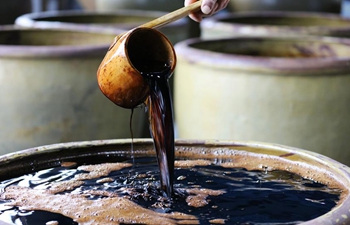CHICAGO, Nov. 20 (Xinhua) -- One in five children with food allergies in the United States needed treatment in the emergency department in the past year for a life-threatening reaction to food, reported a study from Northwestern Medicine and Ann & Robert H. Lurie Children's Hospital of Chicago.
However, only 40 percent of children with food allergies had a current prescription for an epinephrine auto-injector, which is necessary for immediate treatment of a severe allergic reaction.
"It is essential that these children are prepared with an action plan and an epinephrine auto-injector," said lead author Ruchi Gupta, professor of pediatrics at Northwestern University Feinberg School of Medicine and a pediatrician at Lurie Children's Hospital.
There are 5.6 million children who have food allergies in the United States at present. The most common food allergies in the United States included peanut, affecting about 1.6 million children, followed by allergy to milk, affecting 1.4 million children; shellfish, one million; tree nut, 900,000; egg, 600,000; fin fish, 400,000; wheat, 400,000; and soy, 400,000.
Sesame was the ninth most common food allergen, affecting about 150,000 children.
As in the previous study, the current study reports that black children were more likely to have food allergies than white children. Black children also were more likely to have multiple food allergies than children of other racial or ethnic groups.
"More research is needed to understand the reason behind these racial differences in food allergy," Gupta said.
The study was published on Nov. 19 in Pediatrics.













